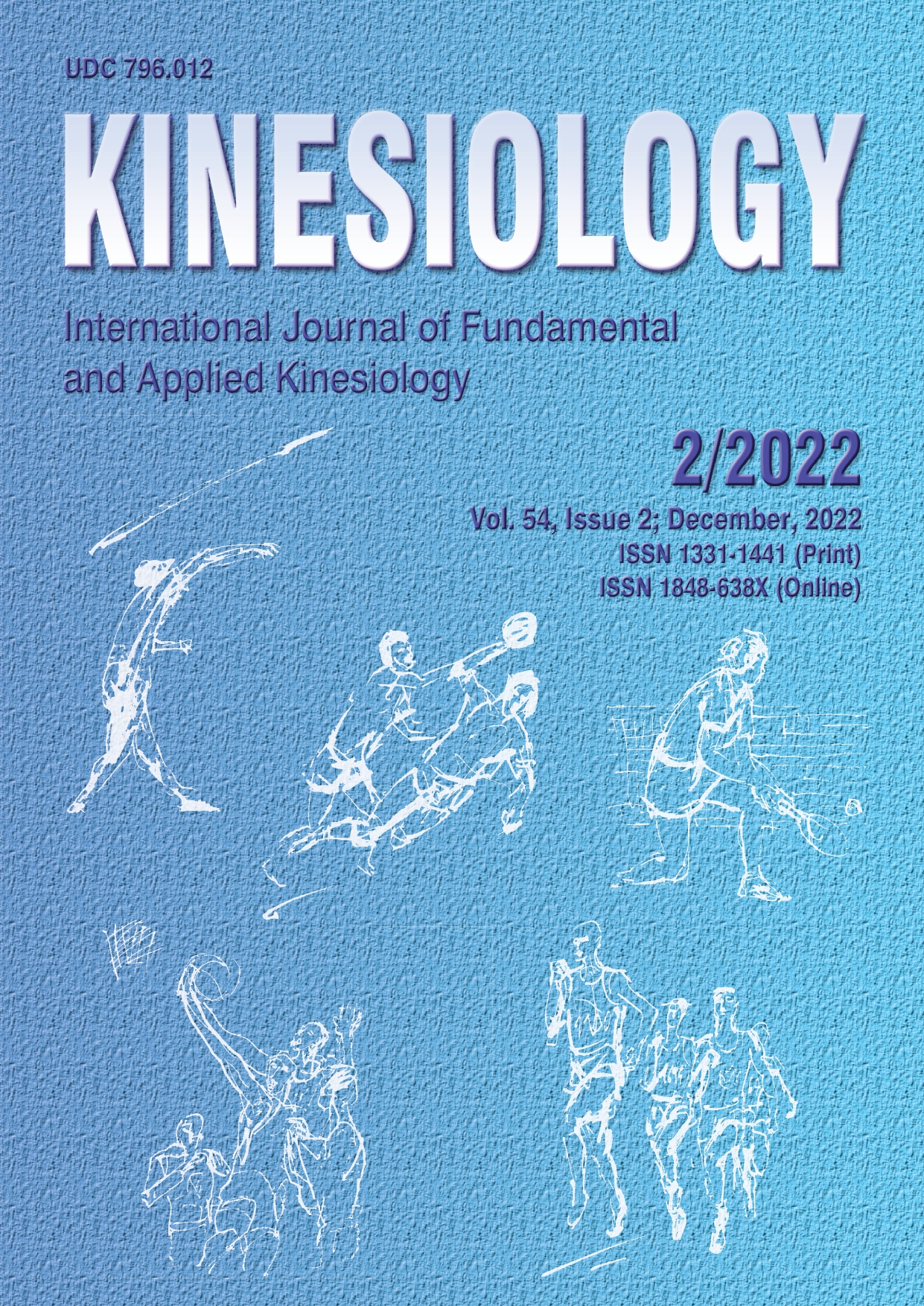LOW ENERGY AVAILABILITY AND CARBOHYDRATE INTAKE IN COMPETITIVE ADOLESCENT SPORT CLIMBERS
Abstract
Competitive adolescent sport climbers are reported to keep very low energy intake in order to achieve the highest possible strength-to-mass ratio required for their sport. Long term low energy availability (< 30 kcal/kg fat free mass/day) is known to have a detrimental effect on health and performance. Due to the potential severity of consequences and the lack of the data on specific population, our aim was to assess energy availability and dietary intake of 27 members of the Slovenian Youth Climbing Team (13-18 years of age). Three-day food and activity records, questionnaires and anthropometric measurements were used to determine participants’ energy availability, nutritional intake, avoidance of food groups and selected health history. Average energy availability in climbers was 27.5 ± 9.8 kcal/kg fat free mass/day and 63% of participants failed to meet the recommended 30 kcal/kg fat free mass/day. Their average carbohydrate (4.3 ± 1.3 g/kg body mass/day), calcium (780 ± 300 mg/day) and vitamin D (2.6 ± 2.3 μg/day) intake were also too low. Average protein intake was in recommended range, but 56% of participants did not meet the minimum recommended limit. Iron intake was too low in females (10 ± 5 mg/day; target 15 mg/day). Only 15% of participants reported not avoiding any food groups. The menstrual dysfunction was detected in five female climbers (36%); all had energy availability < 30 kcal/kg fat free mass/day. We recommend nutritional education of climbers, their coaches, and parents as well as regular individual nutritional assessment of competitive adolescent sport climbers.
Key words: energy intake, food avoidance, dietary intake, body composition, relative energy deficiency in sport
Downloads
Published
How to Cite
Issue
Section
License

This work is licensed under a Creative Commons Attribution-NonCommercial 4.0 International License.
At Faculty of Kinesiology we recognize that access to quality research is vital to the scientific community and beyond. Kinesiology is non-profit journal and all costs of publishing and peer review process are covered by the publisher itself or other funding sources like Ministry of Science and Education of the Republic of Croatia. Full text papers are also available free of charge at http://hrcak.srce.hr/kineziologija. There are no restrictions on self archiving of any form of paper (preprint, postprint and publisher's version).
Articles are distributed under the terms of the CC BY - NC 4.0
Kinesiology does not charge any fees to authors to submit or publish articles in our journal.


